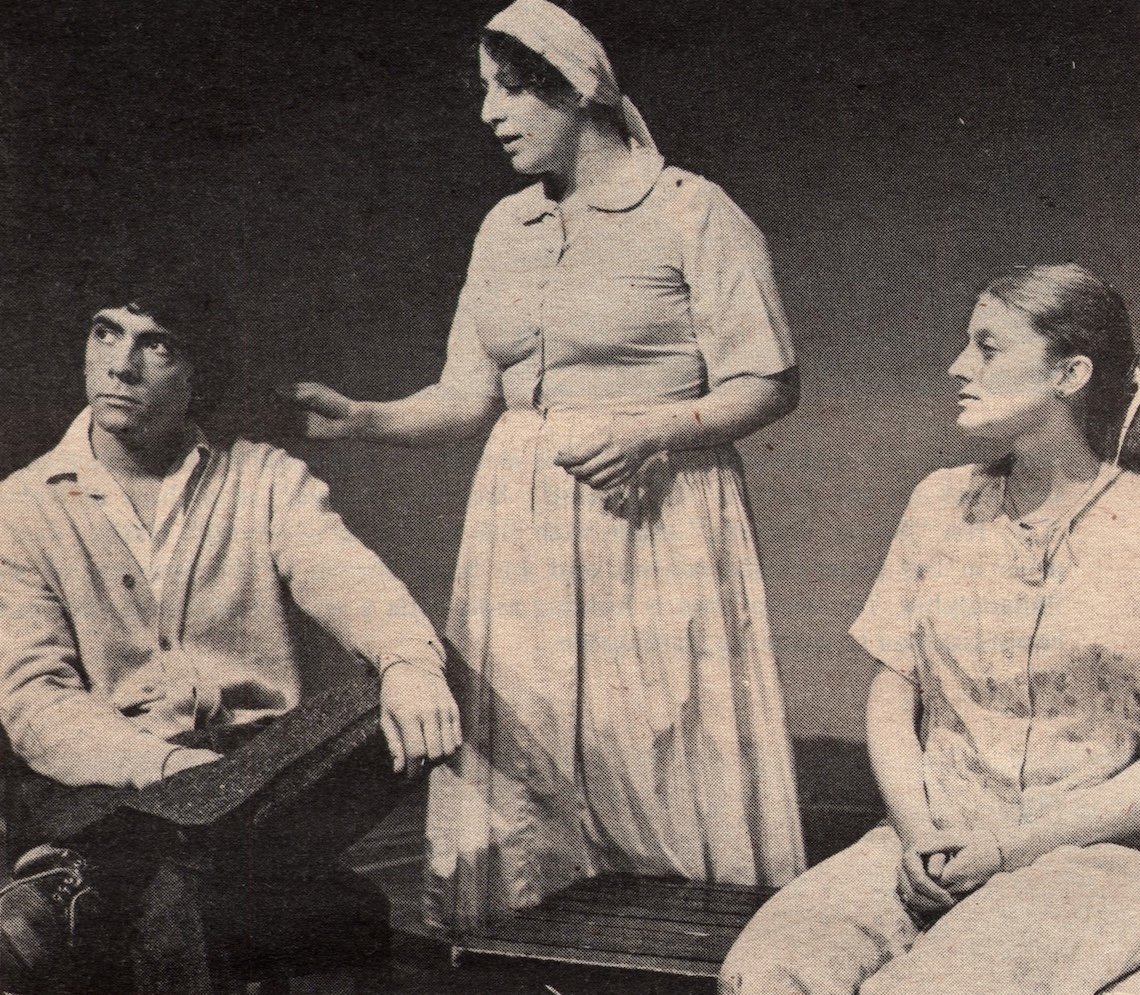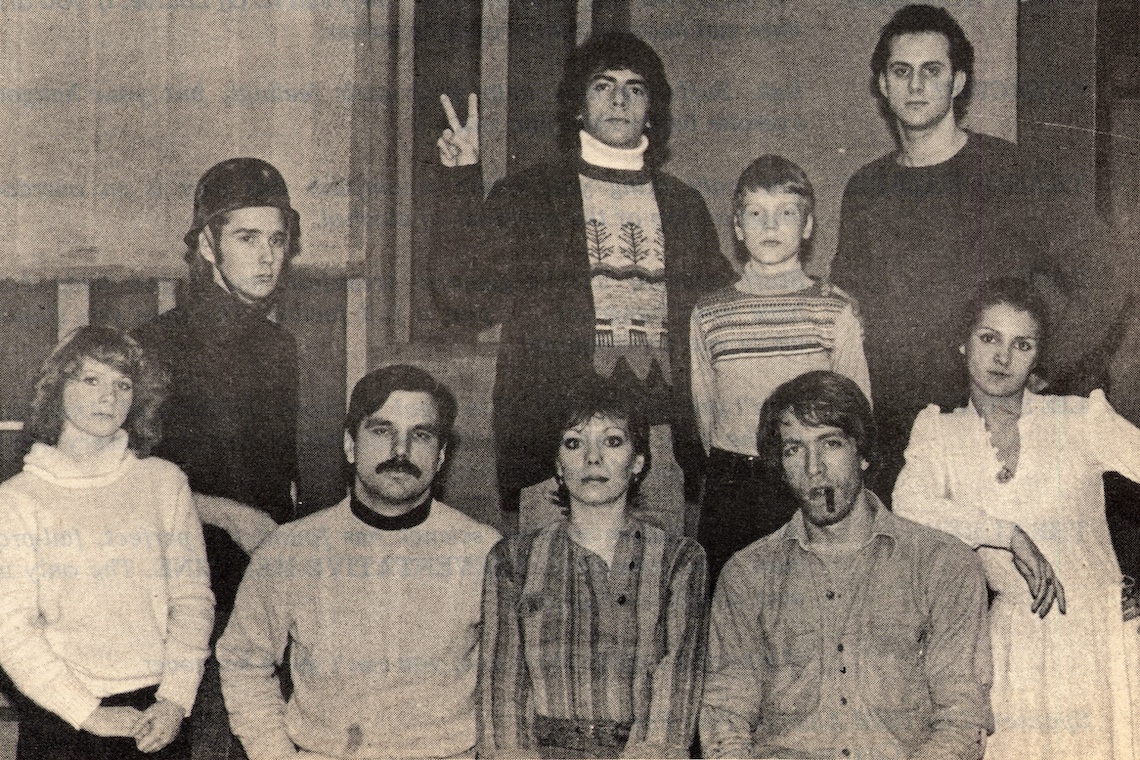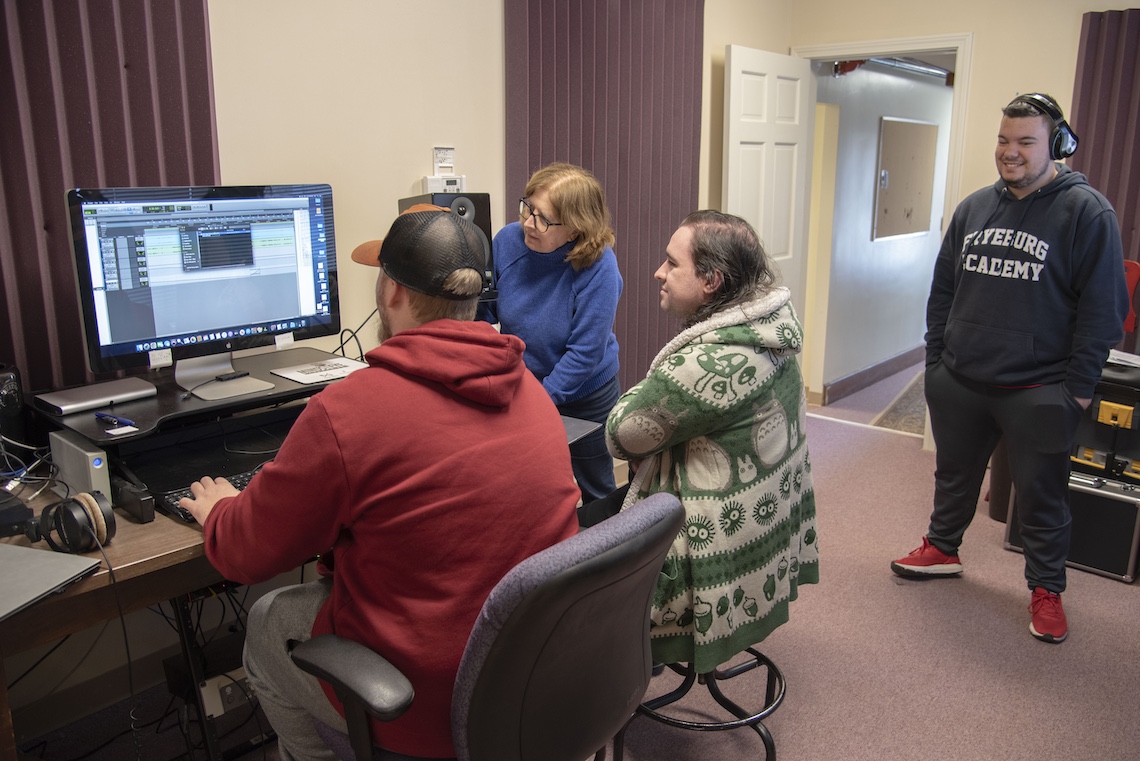
The generation that grew up watching “Bob the Builder” is now college age, and they’re still learning from their favorite cartoon handyman.
William Dufris was the voice actor who spoke for Bob on the show’s original American broadcasts. The equipment that Dufris used for his recordings now resides at the University of Southern Maine in Gorham. Students use it to hone the same skills that laid the foundation for Dufris’ career.
“When I was a little kid, when I was 2, 3, maybe 4, I watched ‘Bob the Builder’ all the time,” Brooks Desrosiers said. “To know that this is his equipment, his work stuff, is weird in a way. It’s a huge honor to be able to work with this stuff and to know the history behind it, as well.”
Desrosiers is a junior in the Theatre program. He sees a future for himself on the production side of audio recording. Recognizing his interest, his teachers enlisted him to help build the sound studio that houses Dufris’ equipment.
Construction spanned three months during fall of 2023. Desrosiers padded the walls with foam insulation to block extraneous noise from interfering with the recordings. He even signed his name in glue on one of the foam panels.
The studio was operational at the start of the 2024 spring semester in January. Having helped to set up the equipment, Desrosiers was eager to also be among the first students to use it in a classroom setting. Being part of school history fed into his excitement.

“Leaving something like that behind is really cool,” Desrosiers said. “To know that there are going to be other people who use this and maybe even have my recordings to work off of is going to be really cool.”
Jessica Lockhardt taught Theatre 280 Special Topics to Desrosiers and his classmates. The lessons covered the basics of creating podcasts, audiobooks, radio dramas, and voice-over recordings.
Unlike the usual assignments that stay between teacher and student, their efforts went public. Several class members worked on both the production and performance sides in the Theatre Department’s staging of “The War of the Worlds,” adapted for radio.
The show challenged students to dramatize a Martian invasion. They had to contend with numerous speaking roles, sound effects, and music cues. As a producer, Desrosiers and his team were responsible for mixing those elements together. Their recording aired March 27 on campus radio station WMPG.
Other class projects were more personal in scope, like the podcast created by Monique Mai. She’s a senior studying Psychology. Mai seized the opportunity to talk about her experience adapting to American culture as an international student from Denmark. Her podcast is called “Alien.”

“I’m a musician, so I was actually very keen on doing editing of sound,” Mai said. “But after starting the course, it’s been so much different from what I’ve imagined, and I’m really liking it.”
Acting was the outlet that Dufris used to express himself when he attended USM. He was known back then by his legal name of William Duffy. Dufris was a stage name that he later adopted. He grew up in the northern Maine town of Houlton and ventured south in 1979 to study English at USM. But then the acting bug bit, and he switched his major to Theatre.
Dufris acted in several University productions over the next few years. His credits include “The Imaginary Invalid,” “The Glass Menagerie,” “The Inspector General,” and more. Before completing his degree, however, he left school to launch his career. He eventually found his niche in voice work.
“Bob the Builder” is probably Dufris’ biggest claim to fame. The animated series and its spinoffs ran from 2001 to 2011, first on the Nickelodeon cable network and later on public television. Bob would face a new construction job each episode, prompting Dufris to speak the catch phrase, “Can we fix it?” Millions of viewers would answer, “Yes we can!”
“The first day of class, I said, ‘Anybody know Bob the Builder?’ Every hand raised,” Lockhardt said. “When I told them this (recording equipment) was all donated from Bill Dufris, there were, like, ‘Wow! This guy who’s really famous?’”

Dufris left “Bob the Builder” after five years to run his own audio company. His voice was in high demand for book readings and radio plays. He was just as prolific as a producer. Among the major projects his company handled was an audio continuation of the “X-Files” television show, starring original cast members David Duchovny and Gillian Anderson.
Dufris was 62 years old when he died in 2020 from esophageal cancer. His family and creative partner, Fred Greenhalgh, wanted to find a good home for his equipment. In recognition of Dufris’ college experience, they chose USM’s Theatre Department.
The donation consisted of four high-end microphones that feed into a computer which is outfitted with editing software and a massive library of sound files. There wasn’t a free room for all of that gear in Russell Hall, where the Theatre Department is based. Program leaders had to look elsewhere.
Their solution was a short walk across the Gorham campus to the building at 51 College Ave. It served primarily as costume storage for the last several years. But once it was cleaned out, there was plenty of space for a recording booth, editing suites, and more. Desrosiers and his follow renovators made it happen.
“The setup here is really good,” Lockhardt said. “We had all the soundproofing, we’ve got the high-quality mics, the wonderful editing program. I have really high hopes for this place.”

In addition to her classroom role, Lockhardt is also the Program Director at WMPG. She saw how the Portland-based station could benefit from the excitement around the new audio equipment. That led to the creation of a WMPG satellite office adjoining the sound studio in Gorham where students produce radio segments using their new skills.
As students became familiar with the equipment, they mastered its basic functions and moved on to more specialized features. Lockhardt expects the groundwork they laid will allow future classes to take their work to even higher levels.
A reminder of the man who made it possible greets each new visitor to the studio. If they glance at the bookshelf in the lobby, they’ll see a toy figure of Bob the Builder smiling back at them from his perch among the reading material.

